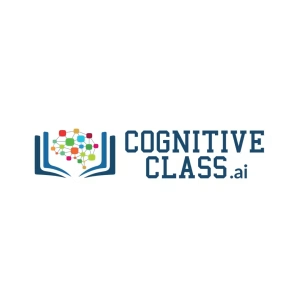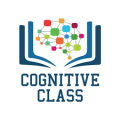- All
- Favorite
- Popular
- Most rated

Analyzing Big Data in R using Apache Spark
Dive into big data analysis with R and Apache Spark. Learn how to process and analyze massive datasets using R and Spark, apply machine learning models, and gain hands-on experience in the efficient handling of big data for insightful decision-making and scalable analytics.

Create NLP Cuisine Classifier
Build your own Natural Language Processing (NLP) cuisine classifier. Learn how to use NLP techniques to classify different types of cuisines based on recipe descriptions or ingredients, and apply machine learning to automate the categorization process.

LLM Foundations: Get started with tokenization
Get started with Large Language Model (LLM) foundations and tokenization. Learn how tokenization is a critical step in NLP and machine learning, and explore techniques for breaking down text data into meaningful components for model training.

A/B testing: The art and science of data-driven choices
Master the art and science of A/B testing for data-driven decision making. Learn how to design, implement, and analyze A/B tests to optimize user experience, increase conversion rates, and make informed business decisions based on empirical data.

Classification of Yelp Reviews using Sentiment Analysis
Discover how to classify Yelp reviews using sentiment analysis. Learn how to apply machine learning models to categorize reviews as positive, negative, or neutral, and gain insights into customer satisfaction and business reputation.

Build a Brand Sentiment Analysis Extension for Twitter
Learn how to build a brand sentiment analysis extension for Twitter. Use natural language processing and machine learning to analyze Twitter data, gauge public sentiment around a brand, and create actionable insights for marketing and branding strategies.

Text Analytics 101
Discover the basics of text analytics in this introductory course. Learn how to extract meaningful information from text data, apply sentiment analysis, and preprocess text using natural language processing (NLP) techniques for data analysis and business insights.

Statistics 101
Master the fundamentals of statistics with Statistics 101. Learn key concepts like probability, hypothesis testing, and statistical inference, and apply them to real-world data analysis and decision-making scenarios in various industries.

Refactoring to microservices with open-source AI technology
Learn how to refactor legacy applications into microservices using open-source AI technologies. Understand the principles of microservices architecture and how to deploy scalable, independent services for improved system efficiency.

Model Evaluation and Refinement Made Easy
Master model evaluation techniques to refine and improve your machine learning models. Learn to use metrics like accuracy, precision, recall, and F1-score to assess performance and tune models for optimal results.

Know Your Worth: Build A Job Salary Estimator
Learn how to build a job salary estimator using machine learning. Analyze job market data, use regression models to predict salaries, and understand the factors affecting salary ranges for various positions and industries.

Pandas or Polars? Which Python library is right for you?
Compare Pandas and Polars for data manipulation in Python. Learn the strengths of each library, when to use them, and how to maximize performance for large datasets to help you choose the right tool for your data processing needs.

Unleashing the Power of XGBoost for Regression in Python
Discover the power of XGBoost for regression tasks. Learn how to implement this powerful machine learning algorithm in Python for predictive modeling, and improve the accuracy of your regression models in real-world applications.

Discover sentiments in customer service tweets
Learn sentiment analysis techniques to assess customer service feedback on Twitter. Master text mining, natural language processing (NLP), and machine learning to understand customer emotions and improve service responses effectively.

Great Expectations, a data validation library for Python
Learn to use Great Expectations for data validation in Python. Explore how this powerful library automates data quality checks, ensures consistency, and integrates seamlessly into data pipelines to improve the reliability of your datasets.

Learn Plotly visualization techniques with ChatGPT
Discover how to create interactive data visualizations using Plotly and ChatGPT. Learn how to design dynamic charts, dashboards, and graphs for analyzing and presenting data in a visually compelling way for business and research purposes.

GitBash Commands on Windows for Beginners
Learn GitBash commands for Windows beginners. Get started with version control by mastering basic Git commands, navigating repositories, and understanding Git workflows for efficient collaboration and code management.

Prognostication using Neural Network in Agriculture
Apply neural networks to predict agricultural outcomes. Learn how deep learning can be used to forecast crop yields, pest outbreaks, and other critical factors affecting farm productivity using agricultural data.

Lazy Predict All Models in One Go
Streamline your machine learning workflow with Lazy Predict. Learn how to quickly test multiple models, evaluate their performance, and select the best algorithm for your data without extensive coding or manual tuning.

Use Kernel PCA To Find Why Are You Poor
Explore Kernel PCA for dimensionality reduction. Learn how this advanced method can uncover hidden patterns in financial data and provide insights into socio-economic factors that contribute to wealth disparities.

Predicting Taxi Tip using Scikit-Learn and Snap ML
Predict taxi tips using Scikit-Learn and Snap ML. Learn to preprocess data, apply machine learning algorithms, and evaluate model performance to build an accurate predictive model for taxi service data.

Winning Techniques for Your Next Kaggle Data Science Contest
Get ahead in Kaggle competitions with expert techniques. Learn data preparation, feature engineering, model selection, and ensemble methods to boost your ranking and performance in data science challenges.

World Cup Soccer game Prediction Using Machine Learning
Build a machine learning model to predict World Cup soccer game outcomes. Learn to preprocess player, team, and match data, apply classification algorithms, and evaluate model performance to forecast results in global sports events.

Automate ML Pipelines Using Apache Airflow
Explore how to automate machine learning pipelines using Apache Airflow. Learn how to schedule, monitor, and manage end-to-end workflows for ML tasks, streamlining model training, evaluation, and deployment in production environments.
Comprehensive Guide to Cognitive Class
Overview of Cognitive Class: Cognitive Class, originally known as Big Data University, is an online platform renowned for delivering high-quality education in data science, AI, and other technology fields. This guide explores the key features, benefits, and impact of Cognitive Class, emphasizing how it empowers learners to gain valuable skills and advance their careers.Introduction to Cognitive Class
- What is a Cognitive Class? Cognitive Class is an educational platform offering a wide array of courses in data science, artificial intelligence (AI), and technology-related topics. Developed by IBM, it provides free access to resources aimed at helping individuals gain expertise in areas such as data analytics, machine learning, and cloud computing.
- Mission and Vision: Cognitive Class is dedicated to democratizing education by making advanced technological training accessible to everyone. The platform’s mission is to equip learners with the necessary skills and knowledge to thrive in the tech industry, thereby fostering a community of professionals capable of driving innovation and solving complex problems using data and AI.
Key Features of Cognitive Class
- Extensive Course Catalog: Cognitive Class offers a broad range of courses covering topics like data science, machine learning, AI, and cloud computing. These courses are designed to impart in-depth knowledge and practical skills, catering to learners at all levels, from beginners to advanced users.
- IBM-Developed Content: All courses on Cognitive Class are developed by IBM, leveraging the company's extensive industry expertise. This ensures that the content is not only relevant but also aligned with current industry standards, providing learners with high-quality instruction and practical insights.
- Free Access and Certification: Cognitive Class stands out by offering free access to its courses, making it an excellent option for individuals looking to enhance their skills without financial constraints. Additionally, learners can earn certifications upon completing courses, which can help validate their skills and improve career prospects.
Benefits of Using Cognitive Class
- High-Quality, Expert-Led Training: Courses on Cognitive Class are led by industry experts from IBM, ensuring that learners receive high-quality instruction grounded in extensive real-world experience. This expert-led approach equips learners with both theoretical knowledge and practical skills necessary for tackling real-world challenges.
- Accessible Education for All: By offering free access to its courses, Cognitive Class makes advanced technological education accessible to a global audience. This inclusivity helps bridge the gap in tech education and supports the development of a diverse and skilled talent pool.
- Career Enhancement and Development: Cognitive Class’s certification programs offer a significant boost to learners' resumes. By earning certifications, learners can validate their expertise, making them more attractive to employers and opening doors to new career opportunities in data science, machine learning, and AI.
Cognitive Class for Individuals and Organizations
- Skill Development and Mastery for Individuals: For individual learners, Cognitive Class provides an opportunity to develop and refine skills in data science, AI, and related technologies. The platform's courses are designed to offer practical knowledge and hands-on experience, enabling learners to apply their skills in real-world scenarios.
- Career Advancement: Cognitive Class certifications can enhance career prospects by providing recognized credentials that validate a learner’s expertise. These certifications can significantly improve job marketability and open up new career opportunities.
- Employee Training and Upskilling for Organizations: Organizations can utilize Cognitive Class to train and upskill their employees in areas such as data science, AI, and technology. The platform’s courses equip employees with valuable skills that can enhance performance and contribute to the organization’s success.
- Optimizing Data-Driven Strategies: By integrating Cognitive Class’s training into their development programs, organizations can enhance their data-driven strategies and technological capabilities, driving growth and improving overall effectiveness.
Success Stories and User Feedback
- Impact on Learners and Professionals: Cognitive Class has significantly impacted many learners and professionals by providing the skills and knowledge needed to succeed in the tech industry. Success stories highlight how individuals have leveraged the platform to advance their careers and achieve outstanding results.
- User Testimonials and Feedback: Feedback from users of Cognitive Class underscores the platform’s value and effectiveness. Testimonials frequently commend the quality of the courses, the expertise of the instructors, and the practical insights gained, reinforcing the platform’s role in delivering high-quality education.
Getting Started with Cognitive Class
- Creating an Account and Exploring Courses: Getting started with Cognitive Class is simple. Users can create a free account and explore the extensive course catalog, selecting courses that align with their learning goals. The platform’s user-friendly interface makes it easy to navigate and access educational resources.
- Choosing the Right Courses: To get the most out of Cognitive Class, learners should choose courses that match their skill level and career objectives. With topics ranging from introductory to advanced levels, users can tailor their learning experience to meet their specific needs.
- Utilizing Support and Resources: Cognitive Class offers additional support and resources to help learners succeed, including course materials, community forums, and expert guidance. Leveraging these resources can enhance the learning experience and maximize the benefits of the training.

